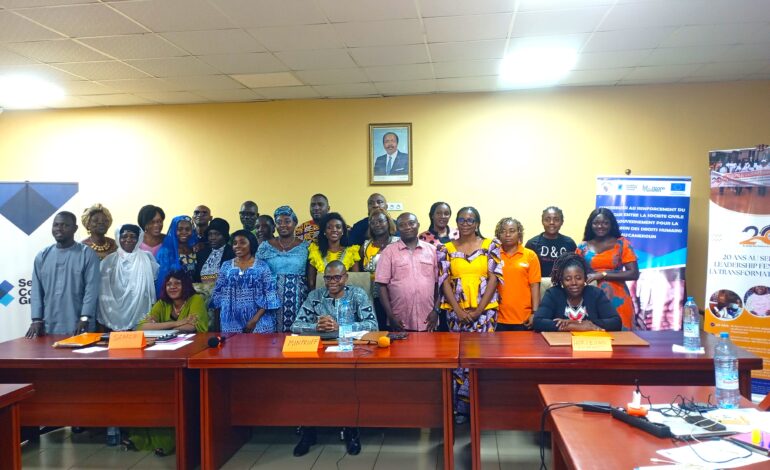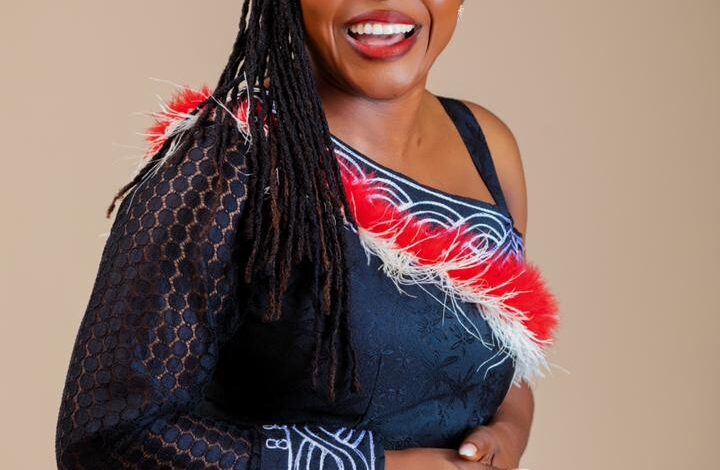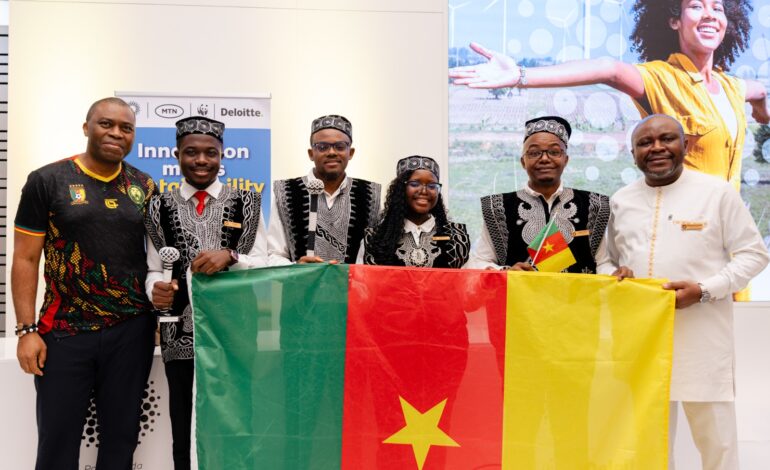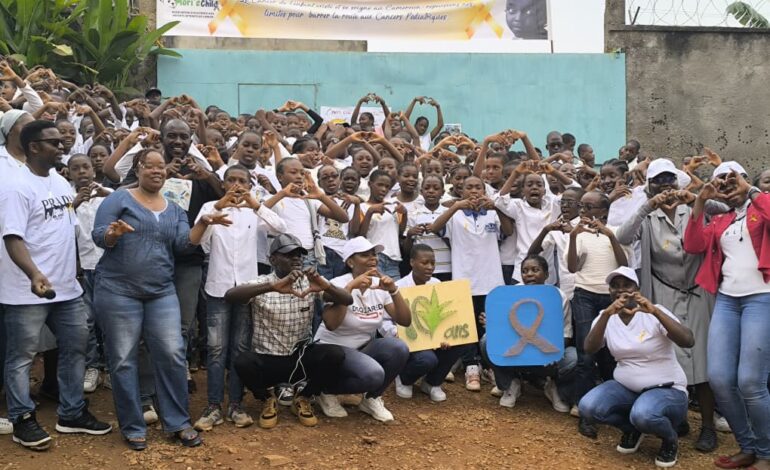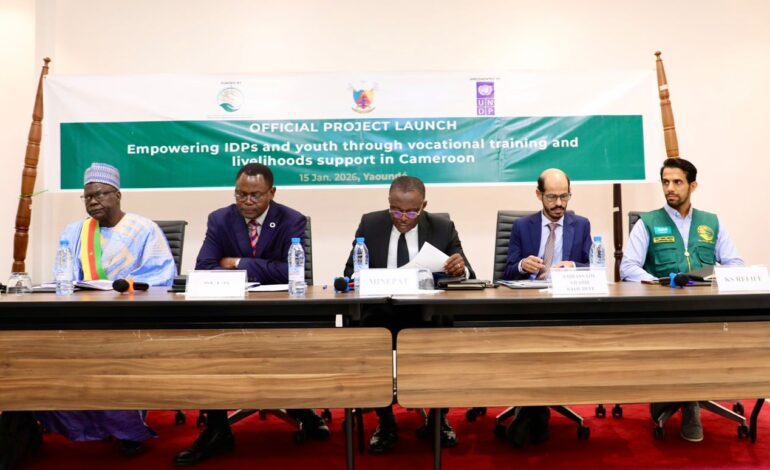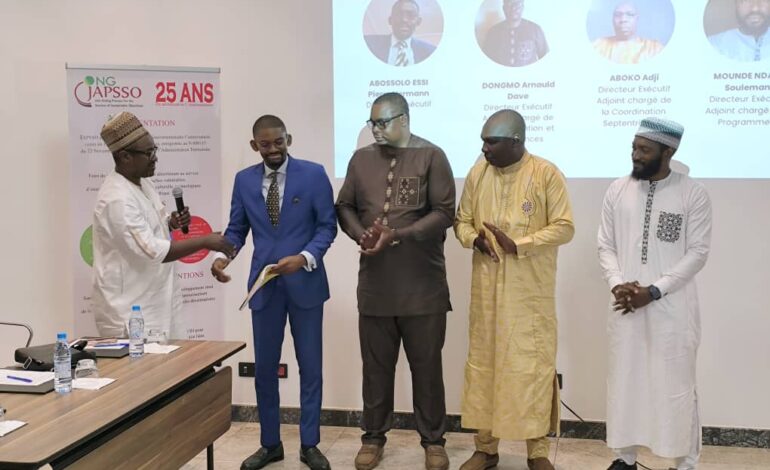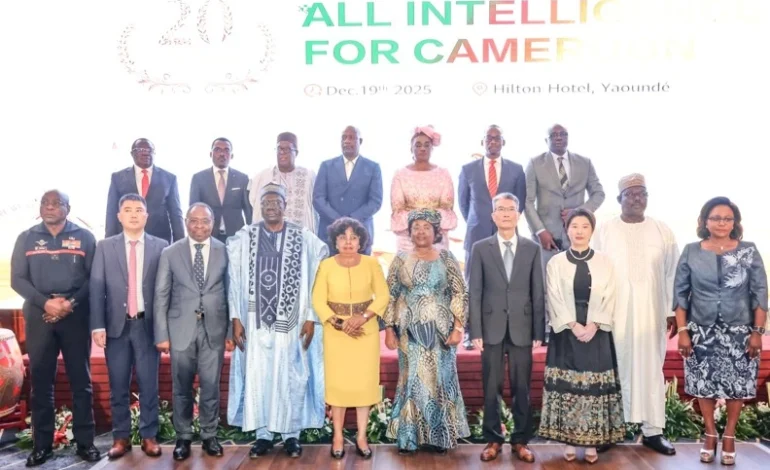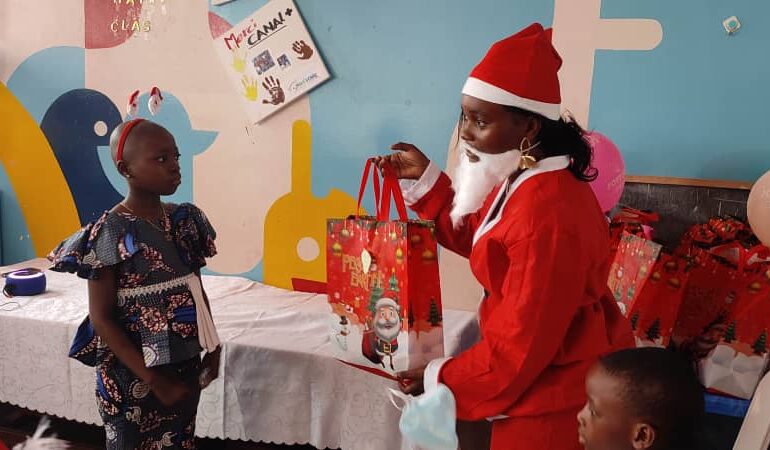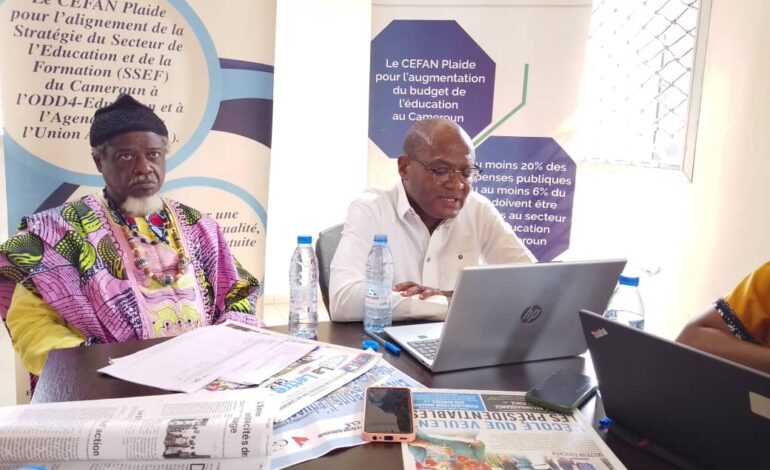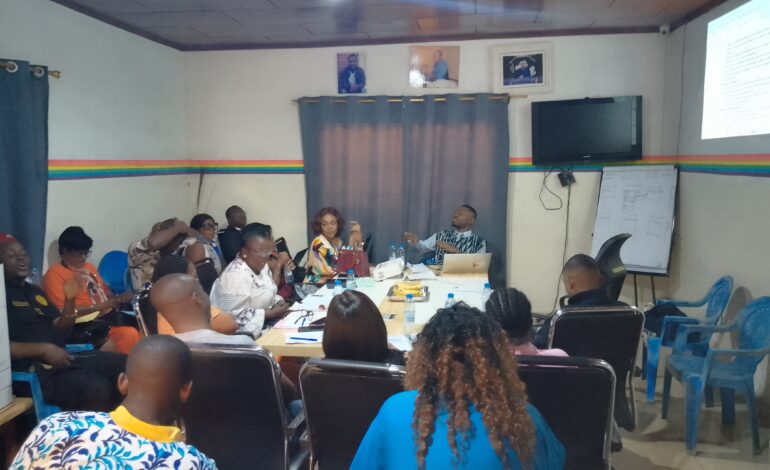Mobilisation, Gouvernance, Plaidoyer : Les OSC Outillées pour un Dialogue Structuré avec l’État
Les 26 et 27 février 2026, la localité de Mbankomo a servi de cadre à un important atelier de renforcement des capacités des Organisations de la Société Civile (OSC), dans le cadre d’un projet financé par l’Union européenne et mis en œuvre par Search for Common Ground et Horizons Femmes, sous la coordination du Ministère de la Promotion de la Femme et de la Famille (MINPROFF). Cette activité s’inscrit dans la continuité de l’évaluation des besoins et capacités (A1.1.1) réalisée en septembre 2025 auprès de 50 OSC. Celle-ci avait permis d’identifier des besoins prioritaires en gouvernance, gestion de projets, suivi-évaluation, budgétisation, mobilisation des ressources, communication et plaidoyer, ainsi qu’en structuration interne et planification stratégique. Prenant la parole au nom de la Directrice Exécutive de l’ONG Horizons Femmes, la Directrice des programmes, Madame Toche Carole a indiqué : « Ce projet repose sur une conviction forte et partagée : lorsque les organisations de la société civile disposent des capacités institutionnelles solides, des compétences renforcées et de réseaux efficaces pour mener un plaidoyer constructif ; lorsque leurs actions de communication et de suivi-évaluation sont sensibles aux conflits et lorsque les institutions nationales de promotion et de protection des droits humains s’engagent dans un dialogue ouvert, structuré et sincère avec elles, alors des avancées concrètes et mesurables en matière de droits humains deviennent possibles. » La Directrice des programmes de l’ONG Horizons Femmes dans son propos liminaire a également souligné le fait qu’en unissant leurs efforts, les OSC, plateformes et réseaux associatifs et institutions publiques, auront la capacité de transformer les recommandations issues de l’examen périodique universel (EPU) en actions concrètes, mesurables et porteuses de changement pour les communautés. Carole Toche a saisi l’occasion pour saluer les multiples efforts de Search for Common Ground, partenaire de l’ONG Horizons Femmes qui œuvre pour un dialogue citoyen, la cohésion sociale et la consolidation de la paix. Une mobilisation nationale autour du renforcement institutionnel Près d’une trentaine d’OSC venues des régions du Centre, Sud, Sud-Ouest, Littoral, Ouest, Est, Nord-Ouest, Adamaoua et Extrême-Nord ont pris part à ce séminaire en présence de Olinga William, représentant du MINPROFF, de Tatiana Lobé, représentante pays de Search for Common Ground, et de Carole Toche, représentante de la directrice exécutive de Horizons Femmes. L’objectif général de l’activité était clair : renforcer les capacités techniques, managériales, organisationnelles et financières des OSC afin qu’elles contribuent efficacement au suivi des recommandations de l’Examen Périodique Universel (EPU) et au dialogue structuré avec les institutions publiques telles que le MINJUSTICE, la CDHC, le MINPROFF et les Services du Premier Ministre. Durant deux jours intensifs, huit modules ont structuré les travaux. Les participants a cette rencontre ont pu enrichir leurs connaissances sur des thématiques bien connues avec un accent sur les problématiques qui sont mises en exergue dans le cadre de ce projet. Gouvernance et obligations juridiques Le premier module a mis l’accent sur la gouvernance, la structuration et les obligations juridiques des OSC. Les participants ont été outillés pour mettre en place des mécanismes de gouvernance transparents, conformes aux exigences légales nationales, afin de renforcer leur crédibilité et leur accès aux financements. Développement organisationnel et administration interne Les deuxième et troisième module ont porté sur le développement organisationnel, la gestion administrative et les outils internes. L’objectif était de doter les OSC d’un socle administratif solide et standardisé, garantissant efficacité opérationnelle et conformité juridique. Suivi-évaluation : des outils pour une meilleure performance Les modules 4 et 5 ont introduit les concepts fondamentaux du suivi-évaluation (S&E), les méthodes de collecte et d’analyse des données, ainsi que la production de rapports fiables. Les participants ont appris à distinguer suivi et évaluation, à utiliser des outils pratiques et à interpréter les données pour appuyer la prise de décision et la capitalisation des résultats. Gestion de projet et gestion des risques Le module 6 a permis de revisiter les étapes clés de la gestion de projet : planification, exécution, reporting et gestion des risques. Les OSC ont été outillées pour intégrer efficacement le suivi-évaluation tout au long du cycle de vie de leurs projets. Communication et mobilisation des ressources Les deux derniers modules ont mis l’accent sur la communication institutionnelle et les relations avec les acteurs publics, ainsi que sur la mobilisation des ressources. Les participants ont exploré les stratégies de recherche de financements, le développement de partenariats et la préparation de dossiers de financement solides et convaincants. Des OSC engagées pour les droits humains et la SND30 Au terme des travaux, les participants ont exprimé leur satisfaction. Penda Guy Stéphane, président de l’association « On est ensemble », basée à Mora, a salué la qualité des échanges et a qualifié l’atelier d’enrichissant et convivial. « L’objectif était de nous renforcer sur notre administration et notre gouvernance. Nous sortons édifiés et prêts à nous mettre à jour en termes de gouvernance professionnelle et de performance. Nos organisations ont pour vocation d’accompagner le développement de notre pays à travers la SND30. Nous œuvrons spécifiquement dans les droits de l’homme, ce qui traduit le respect de l’État de droit. Nous allons mettre en pratique ce que nous avons reçu afin de mieux défendre les droits des personnes abusées. » Vers des plans de renforcement individualisés Au-delà des formations collectives, le projet prévoit l’élaboration de plans de renforcement individualisés pour chacune des 50 OSC ciblées. Il ambitionne également de favoriser un cadre permanent d’échanges entre les OSC et les institutions étatiques. À travers cette initiative, les partenaires entendent contribuer à l’émergence d’une société civile plus structurée, plus professionnelle et davantage impliquée dans le suivi des engagements internationaux du Cameroun en matière de droits humains. Ce séminaire de Mbankomo marque ainsi une étape importante vers une collaboration renforcée entre la société civile et les pouvoirs publics, au service d’une gouvernance plus inclusive et responsable. Myriane Djamegne
Read More

